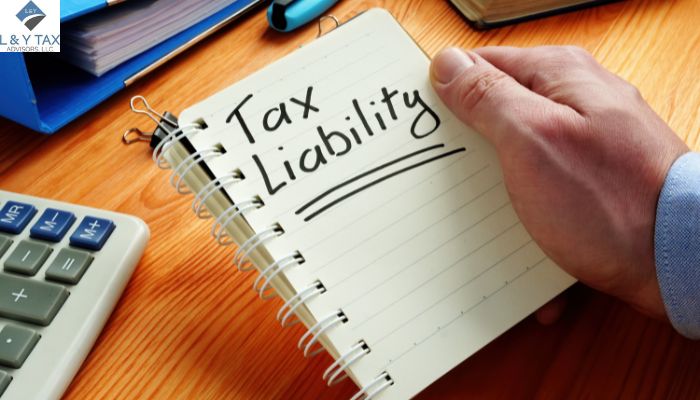
Tax Avoidance vs Tax Evasion
Taxes are an unavoidable aspect of today’s daily lives. They provide funding for critical public services and infrastructure, guaranteeing the smooth operation of society. However, many people often need clarification over the delicate differences between tax avoidance vs tax evasion because they prevent paying the increasing amounts of taxation.
Such circumstances have given rise to two phrases that are sometimes used interchangeably but have quite distinct meanings – tax avoidance vs tax evasion. Therefore, it is vital to seek professional guidance from tax advisors and look at the differences between them, including their legitimacy, ethical implications, and influence on governments and society of your country.
What is Tax Avoidance?
Individuals and corporations use tax avoidance as a legal method to reduce their tax burden. It is accomplished by the exploitation of numerous loopholes, deductions, credits, and exemptions permitted under tax rules.
The fundamental goal of tax avoidance is to decrease taxable income, resulting in fewer tax payments. It is critical to underline that tax avoidance is legitimate and an accepted activity within the premises of tax legislation.
Key Aspects of Tax Avoidance
The following are the critical aspects of tax avoidance:
- Tax Incentives
Taxpayers use government-sponsored incentives, such as tax credits for renewable energy investments or charitable contribution deductions, to reduce their taxable income.
- Legal Compliance
The strategies to avoid tax stay in compliance with the letter of the law and do not entail any deceitful activities.
- Transparency
Taxpayers who engage in tax avoidance declare their financial transactions and activities to tax authorities as necessary.
- Long-Term Financial Planning
Tax avoidance strategies involve lawful investments and financial decisions. These are frequently included in long-term financial planning.
- Tax Experts
Many people and corporations seek the guidance of tax experts in order to maximize their tax planning while remaining within legal limitations.
Examples of Tax Avoidance
You can easily understand the differences between tax avoidance vs tax evasion by going through the following examples:
- Individual Retirement Accounts (IRAs)
Contributions to retirement plans such as 401(k)s and IRAs are tax-deductible, lowering taxable income until withdrawals during retirement.
- Capital Gains Tax Strategies
Investors can qualify for lower long-term capital gains tax rates by holding assets for longer than a year.
- Green Investment Tax Credits
Using tax credits to finance energy-efficient home upgrades or electric automobiles.
Recognizing Tax Evasion
Tax evasion is an unlawful conduct that involves the intentional misrepresentation or concealment of income, assets, or financial activities to avoid paying taxes. It is critical to understand that tax avoidance is illegitimate, immoral, and criminal. Individuals or corporations who engage in tax evasion may face harsh consequences such as fines, jail, or both.

Critical Aspects of Tax Evasion
The following are the key aspects of tax evasion:
- Illegal Activities
Tax evasion involves felonious practices, such as underreporting income, concealing assets overseas, exaggerating deductions, or fabricating bogus transactions.
- Fraudulent Intent
Tax evaders intentionally deceive tax authorities in order to pay less tax than they owe.
- Concealment
Tax evaders sometimes go to considerable measures to conceal their financial activity, such as the utilization of offshore accounts or shell corporations.
- Noncompliance
Tax evasion is a breach of tax regulations, and evaders frequently fail to declare income or transactions appropriately.
- Felonious Charges
Individuals and corporations discovered committing tax avoidance may face criminal penalties, including imprisonment.
Tax Evasion Examples
Following are some basic examples that highlight the differences between tax avoidance vs tax evasion:
- Income Underreporting
Falsifying income statements or concealing cash transactions to reduce taxable income.
- Offshore Tax Havens
The establishment of secret accounts in nations with tight banking secrecy rules in order to conceal income and assets from tax authorities.
- Phantom Employees
False employees on a company’s payroll who are used to divert cash fraudulently.
Tax Avoidance vs Tax Evasion
Now that the individualized concepts have been clearly stated, it is time to compare tax avoidance vs tax evasion.
- Legitimacy
Tax avoidance is legal and within the premises of tax regulations. In contrast, tax evasion is illegal and punishable by criminal prosecution.
- Ethical Concerns
Tax avoidance is often seen as ethical since it employs lawful ways to reduce the tax burden. In contrast, tax evasion is unethical and is frequently regarded as a violation of trust with society.
- Transparency
Tax avoidance is usually transparent and entails disclosing financial activity as needed. In contrast, tax evasion is the purposeful concealment and deception of tax authorities.
- Penalties
There are no criminal consequences for tax avoidance. However, tax officials may question some specific techniques. In contrast, tax evasion is punishable by penalties, imprisonment, or both.
- Intent
Tax avoidance intends to legitimately decrease the tax burden, while tax evasion often misleads and lowers tax liability illegally.
- Strategies Examples
Tax evasion is the use of tax credits, deductions, and exemptions. In comparison, underreporting income, offshore accounts, and bogus transactions are all examples of tax evasion.
Conclusion
To summarize tax avoidance vs tax evasion, it is crucial to understand that these are two separate concepts with significant legal and ethical distinctions. Tax evasion is a criminal act, including intentional deceit and unlawful acts to escape taxes. In contrast, tax avoidance uses reasonable techniques to lower tax responsibility within the bounds of tax regulations. Individuals and organizations must grasp the differences between these phrases to participate in competent tax planning that conforms with the law. Finally, society relies on honest and equitable tax consulting services and timely payment of taxes to provide critical public services, and tax evasion undermines this fundamental concept.
Read More:


